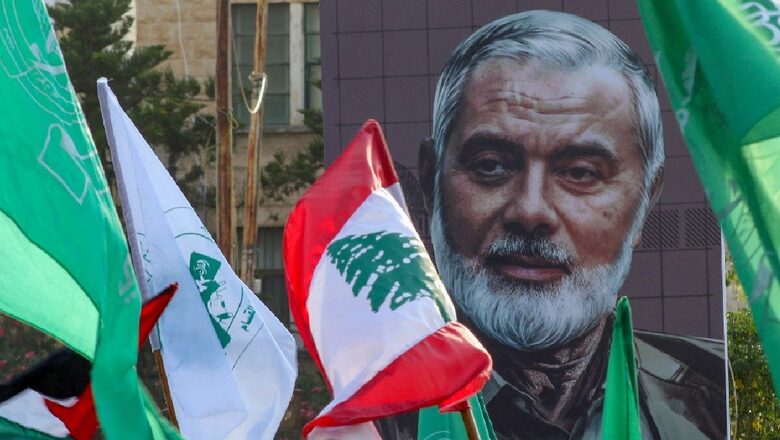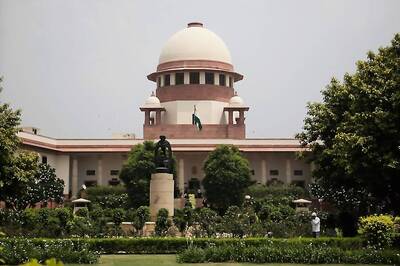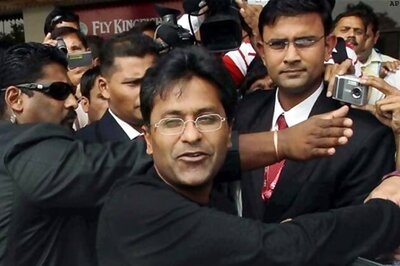
views
On July 31, leaders from around the world gathered in Tehran for the inauguration of newly elected Iranian President Masoud Pezeshkian. Among them was Ismail Haniyeh, the political bureau chief of Hamas and one of its most senior leaders. He was assassinated in Tehran. Iran’s Revolutionary Guards confirmed Haniyeh’s death hours after he attended the swearing-in ceremony for the new president and stated that an investigation was underway, underscoring the gravity of the situation.
The assassination comes hours after Israel claimed to have killed Fuad Shukr, the Hezbollah commander that it said was behind a deadly strike in the Israeli-occupied Golan Heights. Israel had vowed to kill Haniyeh and other Hamas leaders in response to the group’s October 7 attack on Israel, which resulted in the deaths of 1,200 civilians and the hostage-taking of around 250 others.
Big Blow to Iranian Security and Intelligence Apparatus
The location of the assassination in Tehran is particularly notable, as it signals Israel’s willingness to strike even within Iran, potentially challenging the security guarantees provided by Hamas’s allies. The timing of the assassination, coinciding with the swearing-in of Iran’s new president, Pezeshkian, puts immediate pressure on the new administration.
Pezeshkian, considered a moderate seeking to improve relations with the West, now faces a challenging balancing act between responding to calls for retaliation and maintaining his diplomatic objectives. In January 2020, Iranian Major General Qasem Soleimani was eliminated by an American drone strike in Iraq. While the Iranian government pledged retribution, no substantial action was taken. Despite the anticipated escalation in West Asia, both parties exercised restraint. Unlike the previous incident involving an Iranian official outside national borders, this assassination occurred within Iran, raising questions about Iranian security and intelligence capabilities and potentially diminishing its image as a regional power in West Asia.
Iran, as an adversarial nation to Israel, may perceive this as a significant provocation and consider military retaliation. As Ayatollah Khamenei stated, “The criminal and terrorist Zionist regime has martyred our dear guest in our home and saddened us. But it created a background for its tough punishment.” It is noteworthy that Israel has neither confirmed nor denied involvement in the assassination.
Partial Victory for Netanyahu and Israel
The assassination is being perceived as a significant strategic achievement for Israel in its campaign against Hamas, marking the most notable impact on the organisation since the October 7 attacks. Recently, Prime Minister Benjamin Netanyahu was on an official visit to the US to garner support for Israel and to enhance its image domestically, addressing a joint session of Congress. Notably, 96 senators abstained from attending this address, while substantial pro-Palestinian demonstrations occurred outside the Capitol. US President Biden and Vice President Kamala Harris reportedly issued unequivocal directives to Netanyahu to accept a proposed three-phase ceasefire in response to widespread protests at American universities and near the Capitol during the address.
With less than 100 days until the US presidential elections, it is posited that the US administration may have urged Netanyahu to neutralise key Hamas and Hezbollah leaders to facilitate a ceasefire agreement. Prior to the reported assassination of Ismail Haniyeh, the Israel Defence Forces (IDF) purportedly eliminated senior Hezbollah commander Fuad Shukr via an airstrike in a southern Beirut suburb. Israel also declared that Mohammad Deif, the military leader of Hamas in Gaza, was also killed in an air raid last month.
These reported actions suggest that Israel may be attempting to demonstrate to the international community its efficacy in neutralising Hamas and Hezbollah leadership, potentially to legitimise its operations in Gaza. It is conceivable that, under US pressure, Israel is expediting its military objectives to create conditions conducive to a ceasefire. The assassination also potentially offers a reprieve to Netanyahu, who has been grappling with leadership challenges and pressure to negotiate a hostage deal with Hamas. This development may not derail ongoing diplomatic efforts, potentially prolonging the Gaza conflict and, by extension, Netanyahu’s tenure.
Puts Question on Hamas’s Future but Opens Gate for New Leaders
The incident raises questions about Hamas’ future leadership, the ongoing conflict in Gaza, and potential regional escalation. Despite Haniyeh’s perceived importance, Hamas’s leadership structure is designed to be resilient, with potential successors like Khaled Mashal ready to step in. The assassination may even present an opportunity for more accommodating leaders to emerge, potentially facilitating negotiations over Gaza and hostages.
Internally, Hamas faces tensions between its political and military wings, with the latter holding significant power in Gaza. The group must also navigate its political future, balancing its militant roots with more recent political aspirations. For Israel, Prime Minister Netanyahu may see a temporary boost in popularity among his base, though broader political challenges remain. The assassination could complicate efforts to reach a deal with Hamas, which Netanyahu might be reluctant to pursue due to legacy concerns.
While regional escalation is a concern, Iran’s response is likely to be measured, similar to its reaction following Qasem Soleimani’s assassination in 2020. However, the incident exposes significant vulnerabilities within Iran’s own security apparatus, a concern that may even overshadow the loss of Haniyeh in Tehran’s strategic calculations.
The author is a Research Assistant at Pondicherry University. He regularly writes about domestic politics, foreign policy, and geopolitics. Views expressed in the above piece are personal and solely those of the author. They do not necessarily reflect News18’s views.



















Comments
0 comment